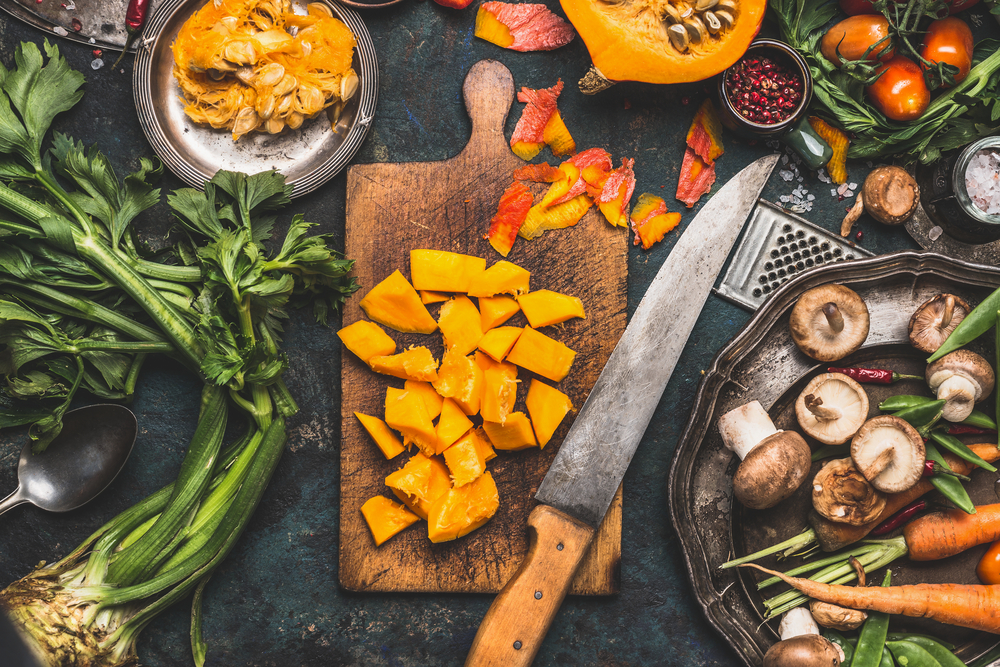
Eating Seasonal: How it Benefits Your Health and the Planet
We’ve all become a bit spoiled by the year-round availability of all kinds of vegetables and fruits at the grocery store. But did you ever stop to think about how far some of that produce has traveled to reach your store shelves — or how long ago it was picked?
Tomatoes, for example, are often grown in Mexico, then transported to the United States by rail or truck. According to the Food Miles calculator, if you’re in Washington, D.C., your tomatoes traveled nearly 1,900 “food miles” over several days to reach your dinner table.
Why Eating Seasonal and Eating Local Makes Healthy Sense for Seniors
In order to transport food long distances, produce is typically picked while still unripe and then gassed to “ripen” it after transport, or it is highly processed in factories using preservatives, irradiation and other means to keep it stable for transport and sale. Even the apples brought in from other parts of the United States may have sat in a refrigerated warehouse for several months before they reach your local grocery.
Another consideration is that eating seasonal food is good for the planet. Every trip (and there are thousands upon thousands made regularly) to bring in food from another country or even across the country, results in greenhouse gas emissions from transport vehicles that rely on fossil fuels.
There are also some tasty and healthy reasons for seniors to eat seasonal foods that are locally or regionally grown.
At a farmers market, produce that is freshly picked is typically sold within a matter of days or even hours. The fresher the produce is, the better the nutrient quality, which is important for senior nutrition. Additionally, when you eat seasonal produce, you get to choose from a bounty of interesting fruits and veggies you might not have tried before — and you’ll definitely notice a difference in the fresh-picked flavor. The bottom line? By buying seasonally and locally, you’re doing great things for your health, while supporting area farmers and doing your part for the planet.
Where to Buy Locally Grown Produce
For many seniors, there’s great joy in growing their own fruits and vegetables. Those lucky enough to live in a senior community like The Chesapeake in Newport News, Virginia, can try out their green thumbs in the community garden. If you don’t love dirt under your fingernails however, you can still enjoy meals prepared by The Chesapeake’s senior dining services chefs that feature seasonal and local produce.
To stock up on your own fresh-picked in-season produce, try a fun outing at an area farmers market or shop one of many supermarkets that maintain special sections just for regional and local produce. To find seasonal produce in your area, try using the search tool at LocalFarmersMarkets.org or the search listings on the USDA’s marketing site.
To see what’s in peak season in your area, also check out this seasonal eating guide. In the month of June in Virginia, where The Chesapeake is located, artichokes and chard are among the many locally grown fruits and vegetables available to enjoy.
One interesting fact to consider: there’s a growing trend toward growing produce hydroponically in controlled indoor conditions. Trends like this will allow all kinds of produce to be grown year-round, regardless of the climate. Ask your local grocer for more information.
In Our Community, Living Beautifully Begins with Eating Deliciously
At The Chesapeake, ensuring our residents enjoy wonderful-tasting, healthy meals is one of our highest priorities. Every menu begins with a cook-from-scratch approach, including our exceptional Seasonal Plate program featuring fresh, local ingredients in a variety of delicious meal options.
Want to know more about the benefits of seasonal eating or experience our dining programs firsthand? Check out our dining page or fill out our contact form and we’ll reach out to you to arrange a tour.

